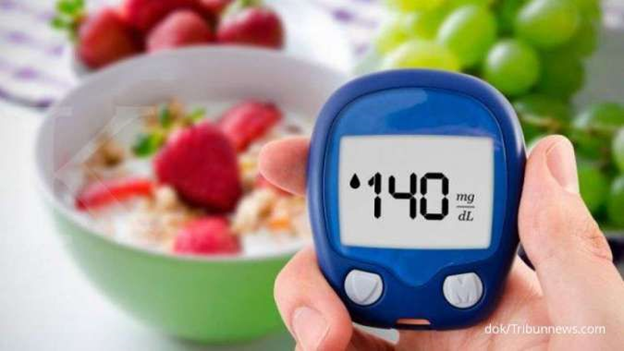It is important for you to recognize the difference between the symptoms of low blood sugar and high blood sugar. This is to support the process of proper diagnosis and selection of the best treatment. Low blood sugar or hypoglycemia and high blood sugar or hyperglycemia are two different medical conditions that you need to understand.
Low blood sugar is a condition when fasting blood sugar levels are below 70 milligrams per deciliter (mg/dL) or less. Meanwhile, high blood sugar refers to a condition when fasting blood sugar levels are above 130 mg/dL. Changes in blood sugar levels, both drops and spikes, are important for you to watch out for, because they can cause serious symptoms and complications.
High blood sugar levels (hyperglycemia) do not cause symptoms until the sugar level rises significantly, above 200 mg/dl. Symptoms of hyperglycemia develop slowly. Early symptoms include:
• Frequent urination
• easily thirsty
• blurred vision
• tired
• headache
If hyperglycemia is not handled properly, it can cause symptoms such as nausea and vomiting, shortness of breath during activity, dry mouth, decreased consciousness, fruity breath. Low blood sugar levels (hypoglycemia), can give symptoms:
• dizzy
• sweating
• hungry
• headache
• anxious or nervous
• muscle weakness
• unaware
• death
High Blood Sugar (Hyperglycemia)
If your blood sugar is above 240 mg/dL, this condition is called high blood sugar or hyperglycemia. High blood sugar usually occurs slowly, occurring when the body doesn’t have enough insulin, eats too much, or doesn’t exercise enough. Sometimes, the drugs you take can cause high blood sugar, or the condition of the body is sick or stressed. High blood sugar and low insulin can cause elevated ketones, and possibly diabetic ketoacidosis, a serious complication that requires immediate medical attention. If this happens, a person can experience shortness of breath, rapid heart beat, confusion and disorientation, vomiting and coma.
How do high blood sugar levels affect the body?
High blood sugar can cause a number of other symptoms and complications, including:
• Frequent urination and feeling thirsty.
High blood sugar passes into the kidneys and urine, causing frequent urination. It can also cause increased thirst despite drinking enough fluids.
• Weight loss.
High blood sugar can cause sudden or unexplained weight loss. This happens because the body’s cells don’t get the glucose they need, so, instead, the body burns muscle and fat.
• Numbness and tingling.
High blood sugar can also cause numbness, burning, or tingling in the hands and feet.
Long term complications
Over time, organs and body systems can be harmed by high blood sugar. Blood vessels become damaged, and this can lead to complications, including heart attack or stroke, damage to the eyes and loss of vision, kidney disease or kidney failure and nerve problems in the skin, especially the feet, leading to sores, infections, and problems healing wounds.
Ways to treat high blood sugar include:
• Take prescribed medication as directed
• Eat less carbohydrates
• Exercise regularly, get enough sleep and reduce stress with meditation or yoga
The need for digital IT is needed in everyday activities, Bead IT Consultant is the right choice as your partner, visit our website by clicking this link: www.beadgrup.com

